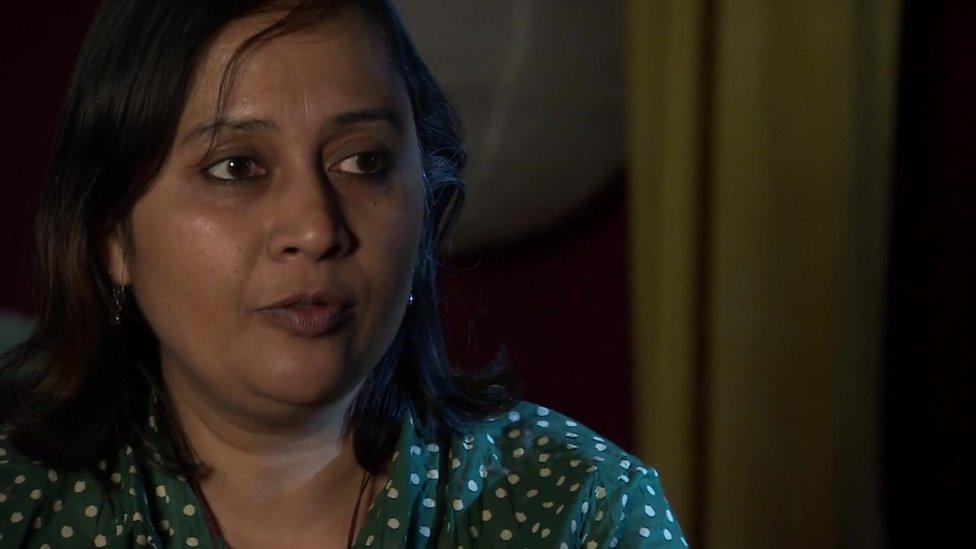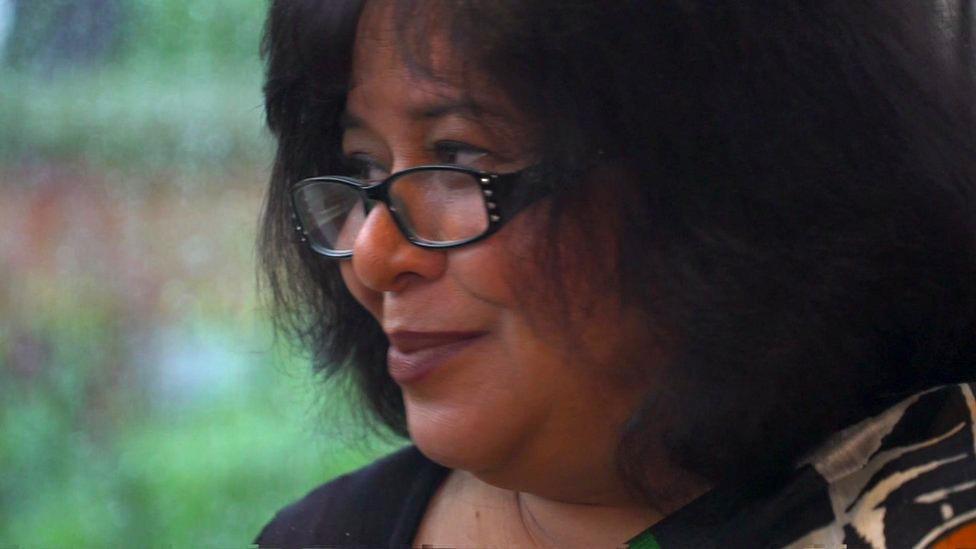Ethnic minority academics speak out over unfair pay
- Published

Pragya Agrawal discovered by accident that she was being paid less than white male colleagues on lower grades
More than a dozen ethnic minority academics from UK universities have come forward with allegations of unlawfully being paid less than white colleagues with similar or lesser jobs.
They have spoken out following BBC revelations that ethnic minority academics are losing out on pay.
And it is not only junior academics who are affected, says Pragya Agrawal.
She was on a grade just below professor when she discovered she was being paid about £8,000 less than white male lecturers in the same department.
Pragya's story
Pragya feels she was doubly discriminated against as an ethnic minority academic and as a woman.
Paying men and women differently at the same level has been unlawful since the Equal Pay Act was introduced in 1970. A government consultation on compulsory ethnicity pay reporting for companies, external with more than 250 staff closed early in January.

"When you do funding applications in a collaborative way, you have to reveal your salary bands on it, how much you are getting paid, and I think it was on one of those things that I found out, that were circulated among the team," she remembers.
"I was appointed at the lowest of that band and those men were on the higher end of the band. It took me by surprise and it was upsetting but I didn't really mention it to anybody.
"I know that as a woman of colour, I was so keen to 'over-prove' myself, so worried about creating a fuss, and so grateful for having been promoted to a senior position that I kept quiet about it.
"I almost felt like, maybe I wasn't performing as well, maybe I wasn't as good as them. All these kind of feelings bubble up.
"I think there are certain practices, toxic practices that are ingrained in academia.
"There are things that academics feel that they need to do to progress but nobody is really clear about what they need to do. These indicators are not very measurable, people don't honestly talk about what is happening."

Mansoor's story
Mansoor says he felt discriminated against after discovering he was on the lowest possible academic salary, despite his nine years of teaching experience.
"It's not meritocratic as you have to work a lot harder for half the recognition," he says.
The extent of the discrimination became clear, he says, when his department appointed a newly-qualified academic on a higher grade to him, amounting to a pay gap of £7,000.
"People were also receiving promotions for unadvertised roles and receiving offers without interviews.
"I'm a British citizen and when I raised the issue I was told by the university to 'go elsewhere'."
He says he faces "casual racism" in his department about his Arab heritage which is hard to address, because "people think academia is such a liberal environment".
"There are stereotypes about what you can and can't teach," he says.
"You're not valued unless you're English. After a while you think, 'why should I bother?'."

Lama's story
Lama, another non-white senior academic, was horrified when she overheard two junior colleagues discussing their pay.
They were newly qualified, in their first jobs as lecturers, and yet, despite her six years' experience of teaching in elite research universities worldwide, their salaries were several thousand pounds higher than hers.
"When I protested the pay gap, I was told that my colleagues negotiated and I didn't. I am locked now in my salary rank until I get a promotion.
"One of the upper administrators tried to appease my anger by suggesting that I submit an application for recognition pay which is only £1,000 per year.
"I refused to, as it does not answer to the injustice and discrimination that I was subject to as a female and non-white member of the department.
"Of course, the whole rhetoric of negotiation does not make sense. There is a structural issue here: the head of the department is a white male and everyone else in upper administration who I tried to talk to were all white males.
"The structure of the university is already biased against other ethnicities and sexes. Because I spoke with anger, I was told I was being emotional, which is itself sexist and racist.
"I found it very hypocritical in universities that claim to want to internationalise the curriculum. That actually comes to mean bringing in more international students as cash cows and a few staff from different backgrounds to feel good about so-called diversity, and push more work on us and pay us less."

Maya's story
Overwhelmingly, the academics who spoke to us chose to remain anonymous for fear that speaking out now would jeopardise their future careers.
"There are many vindictive people in academia," says Maya, who discovered she was at the wrong end of a pay gap during a coffee break with three white colleagues at a university in London.
"The four of us were employed at the same time, having finished our PhDs around the same time and with comparable years of teaching experience.
"We were all shocked. I went to senior management and they didn't try and deny it."
Maya says her head of department apologised and offered to raise her salary, but not enough to close the pay gap.
When she considered challenging it further he advised her not to, saying she might be "seen as an angry black woman" and recommended applying for a promotion instead.
"The whole ordeal left me feeling completely devalued and taken advantage of," she says.
"Unless academic salaries become more transparent, many of us will have no choice but to question whether we are being paid fairly. Until then, the burden is on us to find out."
What the union says
Matt Waddup, the head of policy and campaigns at the University and College Union says: "Not only is this unlawful, it is a huge waste of potential, and risks driving talented staff out of the sector.
'We urgently need much greater transparency on pay for women and ethnic minority staff in higher education, including detailed equal pay audits at a local level.
"Institutions must work with trade unions to tackle the scourge of insecure contracts in the sector that disproportionately impact women and ethnic minority staff."
The Department for Education responded that addressing unfairness in higher education is a priority, adding that the government is acting to address gender and ethnic disparities in the workforce as a whole.
Some names have been changed.
Correction 18th November 2019: An earlier version of this article wrongly referred to Pragya Agrawal discovering she was being paid about £8,000 less than white male senior lecturers on lower grades in the same department. These lecturers were within the same pay grade and so the reference to 'lower grades' has been removed.

- Published7 December 2018
